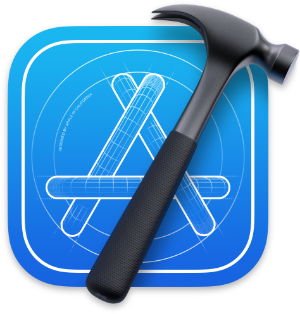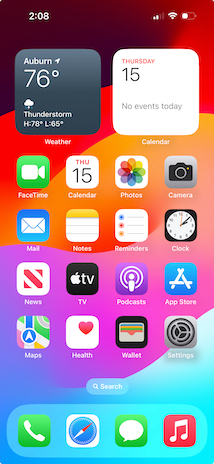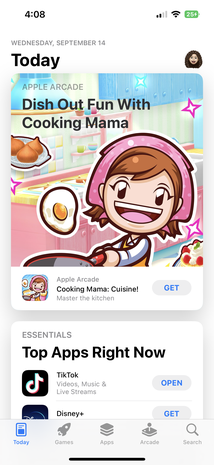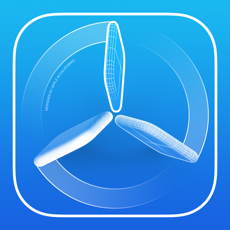
Xcode is Apple's integrated development environment (IDE) for macOS, used to develop software for macOS, iOS, iPadOS, watchOS, tvOS, and visionOS. It was initially released in late 2003; the latest stable release is version 15, released on September 18, 2023, and is available free of charge via the Mac App Store and the Apple Developer website. Registered developers can also download preview releases and prior versions of the suite through the Apple Developer website. Xcode includes command-line tools that enable UNIX-style development via the Terminal app in macOS. They can also be downloaded and installed without the GUI.
Apple Developer is Apple Inc.'s website for software development tools, application programming interfaces (APIs), and technical resources. It contains resources to help software developers write software for the macOS, iOS, iPadOS, watchOS, tvOS and visionOS platforms.
Mobile app development is the act or process by which a mobile app is developed for one or more mobile devices, which can include personal digital assistants (PDA), enterprise digital assistants (EDA), or mobile phones. Such software applications are specifically designed to run on mobile devices, taking numerous hardware constraints into consideration. Common constraints include CPU architecture and speeds, available memory (RAM), limited data storage capacities, and considerable variation in displays and input methods. These applications can be pre-installed on phones during manufacturing or delivered as web applications, using server-side or client-side processing to provide an "application-like" experience within a web browser.

The iPod Touch is a discontinued line of iOS-based mobile devices designed and formerly marketed by Apple Inc. with a touchscreen-controlled user interface. As with other iPod models, the iPod Touch can be used as a portable media player and a handheld gaming device, but can also be used as a digital camera, a web browser, for email and messaging. It is nearly identical in design to the iPhone, and can run most iPhone third-party apps from the App Store, but it connects to the Internet only through Wi-Fi and uses no cellular network data, as it lacks a cellular modem.

iOS is a mobile operating system developed by Apple Inc. exclusively for its smartphones. It was unveiled in January 2007 for the first-generation iPhone, launched in June 2007.

The iOS SDK, formerly the iPhone SDK, is a software development kit (SDK) developed by Apple Inc. The kit allows for the development of mobile apps on Apple's iOS and iPadOS operating systems.

The App Store is an app marketplace developed and maintained by Apple, for mobile apps on its iOS and iPadOS operating systems. The store allows users to browse and download approved apps developed within Apple's iOS SDK. Apps can be downloaded on the iPhone, iPod Touch, or iPad, and some can be transferred to the Apple Watch smartwatch or 4th-generation or newer Apple TVs as extensions of iPhone apps.
iOS jailbreaking is the use of a privilege escalation exploit to remove software restrictions imposed by Apple on devices running iOS and iOS-based operating systems. It is typically done through a series of kernel patches. A jailbroken device typically permits root access within the operating system and provides the right to install software unavailable through the App Store. Different devices and versions are exploited with a variety of tools. Apple views jailbreaking as a violation of the end-user license agreement and strongly cautions device owners not to try to achieve root access through the exploitation of vulnerabilities.

Cydia is a graphical user interface of APT for iOS. It enables a user to find and install software not authorized by Apple on jailbroken iPhones, iPads and iPod Touch devices. It also refers to the digital distribution platform for software on iOS accessed through Cydia software. Most of the software packages available through Cydia are free of charge, although some require purchasing.
A .ipa file is an iOS and iPadOS application archive file which stores an iOS/iPadOS app. Each .ipa file includes a binary and can only be installed on an iOS, iPadOS, or ARM-based macOS device. Files with the .ipa extension can be uncompressed by changing the extension to .zip and unzipping. This is only recommended when editing the app itself. Some ipa's will not have a .app file.
An app store, also called an app marketplace or app catalog, is a type of digital distribution platform for computer software called applications, often in a mobile context. Apps provide a specific set of functions which, by definition, do not include the running of the computer itself. Complex software designed for use on a personal computer, for example, may have a related app designed for use on a mobile device. Today apps are normally designed to run on a specific operating system—such as the contemporary iOS, macOS, Windows, Linux or Android—but in the past mobile carriers had their own portals for apps and related media content.
A mobile application or app is a computer program or software application designed to run on a mobile device such as a phone, tablet, or watch. Mobile applications often stand in contrast to desktop applications which are designed to run on desktop computers, and web applications which run in mobile web browsers rather than directly on the mobile device.
Censorship by Apple refers to Apple Inc.'s removal, omission, or disruption of the spread of content or information from its services or subsidiaries, such as the iTunes Store and the App Store (iOS), in order to comply with Apple's company policies, legal demands, or various government censorship laws.

TestFlight is an online service for over-the-air installation and testing of mobile applications, currently owned by Apple Inc. and only offered to developers within the iOS Developer Program. Developers sign up with the service to distribute applications to internal or external beta testers, who can subsequently send feedback about the application to developers. The TestFlight SDK additionally allows developers to receive remote logs, crash reports and tester feedback.

tvOS is an operating system developed by Apple Inc. for the Apple TV, a digital media player. In the first-generation Apple TV, Apple TV Software was based on Mac OS X. Starting with the second generation, the software is based on the iOS operating system and has many similar frameworks, technologies, and concepts.
XcodeGhost are modified versions of Apple's Xcode development environment that are considered malware. The software first gained widespread attention in September 2015, when a number of apps originating from China harbored the malicious code. It was thought to be the "first large-scale attack on Apple's App Store", according to the BBC. The problems were first identified by researchers at Alibaba, a leading e-commerce firm in China. Over 4000 apps are infected, according to FireEye, far more than the 25 initially acknowledged by Apple, including apps from authors outside China.

A progressive web application (PWA), or progressive web app, is a type of application software delivered through the web, built using common web technologies including HTML, CSS, JavaScript, and WebAssembly. It is intended to work on any platform with a standards-compliant browser, including desktop and mobile devices.

macOS Sierra is the thirteenth major release of macOS, Apple Inc.'s desktop and server operating system for Macintosh computers. The name "macOS" stems from the intention to unify the operating system's name with that of iOS, watchOS and tvOS. Sierra is named after the Sierra Nevada mountain range in California and Nevada. Its major new features concern Continuity, iCloud, and windowing, as well as support for Apple Pay and Siri.

visionOS is a mixed reality operating system derived primarily from iOS core frameworks, and MR-specific frameworks for foveated rendering and real-time interaction. It was developed by Apple Inc. exclusively for its Apple Vision Pro mixed reality headset. It was unveiled on June 5, 2023, at Apple's WWDC23 event alongside the reveal of the Apple Vision Pro. The software released on February 2, 2024, shipping with the Apple Vision Pro.

AltStore is an alternative app store for the iOS and iPadOS mobile operating systems, which allows users to download applications that are not available on the App Store, most commonly tweaked "++" apps, jailbreak apps, and apps including paid apps on the app store. It was publicly announced on September 25, 2019, and launched on September 28.









